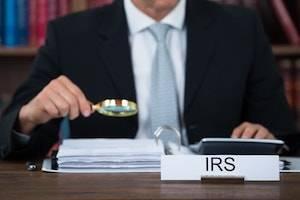Surviving Tax Audits: Record-Keeping Tips
 “You are being audited” are words no person or business wants to hear. Tax audits induce stress and tax professionals are usually needed. Often, taxpayers are concerned that they will discover a large tax obligation or that an audit will take up valuable time.
“You are being audited” are words no person or business wants to hear. Tax audits induce stress and tax professionals are usually needed. Often, taxpayers are concerned that they will discover a large tax obligation or that an audit will take up valuable time.
One of the most important steps you can take in the instance of being audited is to have all supporting documentation on hand. This requires keeping documents for the recommended period of time as well as having an organizational system for these records.
How Long Should I Keep Records?
Records supporting your tax returns should be kept until the period of limitations for that tax return expires. This includes support for any income, deduction, or credit claimed on your taxes.
The period of limitations refers to the timeframe you have to amend a tax return and the timeframe the IRS can determine you owe additional taxes.
Generally, you should keep documentation for at least the past three years of tax returns.
When Should I Keep Records Longer than Three Years?
If you file your taxes and then later claim a refund or credit, you should keep all related records for three years from the refund claim or two years from the payment of the tax, whichever is later.
- If you file a claim as a loss for worthless securities or bad debt deduction, you should keep supporting documentation for seven years.
- If you do not report income as required and the undisclosed amount is more than 25 percent of the gross income you reported, you should keep your records for at least six years.
- For employment tax records, you should keep documentation for four years after the taxes are due or after the taxes are paid, whichever is later.
If you do not file a return, or fraudulently file a return, the IRS recommends keeping your records indefinitely.
If the paperwork relates to property, you likely should keep the documentation for much longer. Usually, it is a good idea to keep such documentation as part of your tax records for the year you sell the property so you can, for example, correctly report if you have a gain or a loss.
Contact a Santa Clara County Tax Audit Lawyer
Our firm helps businesses and individuals understand the audit process and reviewed records to help prepare for IRS tax audits. We can attend the audit and any follow up and can be your voice with the IRS. Having an attorney who is familiar with your case from the outset will make the process go as smoothly as possible and also maximize any damage control.
With an attorney, you can be sure that the amount of taxes you will be required to pay is correct, and an attorney can assist in setting up a payment plan if the taxes owed are large.
If you are being audited or would like to understand ways you can prepare yourself in the instance you get audited, please contact the qualified San Jose tax audit attorney at John D. Teter Law Offices at 408-866-1810.
Sources:
https://www.irs.gov/businesses/small-businesses-self-employed/how-long-should-i-keep-records
http://www.houstonchronicle.com/business/article/Businesses-fear-IRS-audits-but-good-records-can-7224056.php









